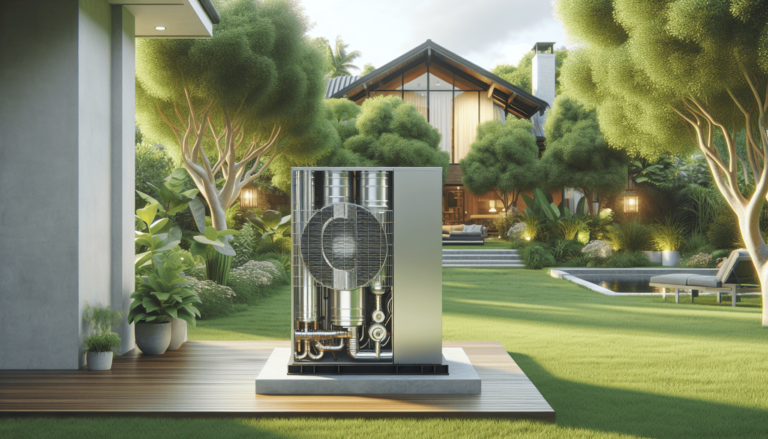

HVAC Services
Get Professional Repairs From The Area's Trusted HVAC Technicians. Ask About Our Services! We Offer Professional Heating & Cooling System Repairs And Guarantee Long-Lasting Results.
Got Question? Call us: (850) 678-2665Financing
Factors Influencing The Efficiency Of HVAC Systems
Discover what makes some HVAC systems more efficient than others. Explore factors like size, maintenance, and technology to lower your energy costs and stay cozy.

Have you ever wondered why some HVAC systems work more efficiently than others? The efficiency of your HVAC system doesn’t just impact your comfort—it also plays a role in your energy bills and the environment. In this article, you’ll explore the diverse factors that can affect your HVAC system’s performance.

Factors Affecting HVAC Efficiency
The efficiency of HVAC (Heating, Ventilation, and Air Conditioning) systems can be influenced by several variables. Understanding these can help improve your system’s performance and lower energy costs.
1. System Size
A well-sized system is crucial for maintaining efficiency. An oversized or undersized system can lead to inefficiency. An oversized system will cycle on and off frequently, causing unnecessary wear and tear. Meanwhile, an undersized system will struggle to meet your home’s heating or cooling demands.
2. Maintenance Practices
Regular maintenance is vital for optimal performance. Checking the system for any issues, replacing filters, and cleaning ducts prevent efficiency loss. You should schedule periodic professional check-ups to ensure everything functions correctly.
3. Insulation Quality
The quality of your home’s insulation affects how efficiently your HVAC operates. Poor insulation allows heat transfer, forcing your system to work harder to maintain the desired temperature.
4. Ductwork Condition
Leaky or poorly insulated ducts lead to a significant loss of energy efficiency. Ensuring your ductwork is sealed and in good condition is critical to maintain your system’s efficiency.
5. Thermostat Settings
The way you use your thermostat impacts your HVAC’s efficiency. Programmable thermostats can adjust temperatures automatically, reducing wasteful energy use when heating or cooling isn’t necessary.
6. Climate and Weather
The local climate can alter how efficiently your HVAC performs. Systems must work harder in extreme temperatures, affecting efficiency.
7. Age of the System
Older systems tend to be less efficient due to age and wear. Advances in technology have led to more efficient models.
8. Energy Source
The type of energy your system uses influences its efficiency. Systems powered by electricity, natural gas, or renewable sources each have varying efficiency levels.
How to Improve HVAC Efficiency
Improving your HVAC’s efficiency can save money and contribute to a more sustainable environment. Consider these strategies to boost system performance.
Upgrade to a High-Efficiency System
Investing in a high-efficiency HVAC system can increase performance and reduce costs. These systems use new technologies to provide better efficiency than older models.
Regularly Change Filters
Replacing air filters regularly helps maintain good air quality and efficiency. Clogged filters force the system to work harder, costing more energy and reducing airflow.
Install a Programmable Thermostat
A programmable thermostat offers better control over your system’s operation, allowing adjustments based on your schedule to conserve energy.
Seal Ducts and Improve Insulation
Ensuring ductwork is properly sealed and your home is well-insulated prevents energy loss. Proper sealing and insulation also improve temperature consistency.
Proper System Sizing and Installation
Choosing the right system size and ensuring it’s installed correctly contributes to efficient operation. Professional installation helps maintain efficiency from the start.
Routine Professional Maintenance
Having your system checked by a professional at least once a year can prevent inefficiency. Regular tune-ups keep your system running smoothly.
The Role of Energy Efficiency Ratings
Understanding energy efficiency ratings can guide better purchase decisions. Ratings like SEER (Seasonal Energy Efficiency Ratio) provide insights into system performance.
SEER Ratings
A SEER rating indicates a system’s efficiency—higher ratings mean more efficient operation. When purchasing a new system, consider a high SEER rating for better energy savings.
Energy Star Certification
Energy Star-certified products meet specific efficiency guidelines. Systems with this certification usually offer higher efficiency and can reduce energy bills.
AFUE and HSPF Ratings
AFUE (Annual Fuel Utilization Efficiency) applies to furnaces, while HSPF (Heating Seasonal Performance Factor) is for heat pumps. Higher ratings signify better efficiency.
Selecting an Effective HVAC System
When choosing a new system, evaluate your options based on efficiency, cost, and your home’s specific needs.
Evaluating Home Needs
Consider factors like home size, climate, and individual preferences to find the best system. Tailoring the selection process ensures meeting your comfort needs efficiently.
Comparing Costs and Benefits
Assess initial costs against potential long-term savings. An efficient model may have higher upfront costs but leads to reduced energy bills over time.
Consulting Professionals
Professionals can offer recommendations and handle installations. Their expertise ensures you select a system that best fits your needs and operating conditions.

Technology and Future Innovations
Technological advances promise further improvements in HVAC efficiency. Stay informed about innovations to keep your system updated.
Smart HVAC Systems
Smart systems integrate advanced control technologies for better efficiency. These systems learn your preferences and adjust operations to maintain comfort efficiently.
Energy-Saving Technologies
New technologies, like variable speed motors and solar-powered options, enhance efficiency and reduce dependency on traditional energy sources.
Environmental Impact
Adopting energy-efficient HVAC technology reduces your carbon footprint. Environmentally friendly systems offer a sustainable way to meet heating and cooling needs.
Conclusion
Your HVAC system’s efficiency significantly affects comfort and costs. Factors ranging from system size to technological advancements play a role in efficiency. By understanding these influences and implementing strategies for improvement, you can achieve an optimal balance of comfort and cost-effectiveness. For personalized guidance, Tempacure Heating and Air Conditioning professionals can provide expert advice tailored to your specific needs and conditions.
Tempacure Heating and Air Conditioning
325 Cedar Ave S, Suite B, Niceville, FL 32578
(850) 678-2665 | tempacurehvac.com






